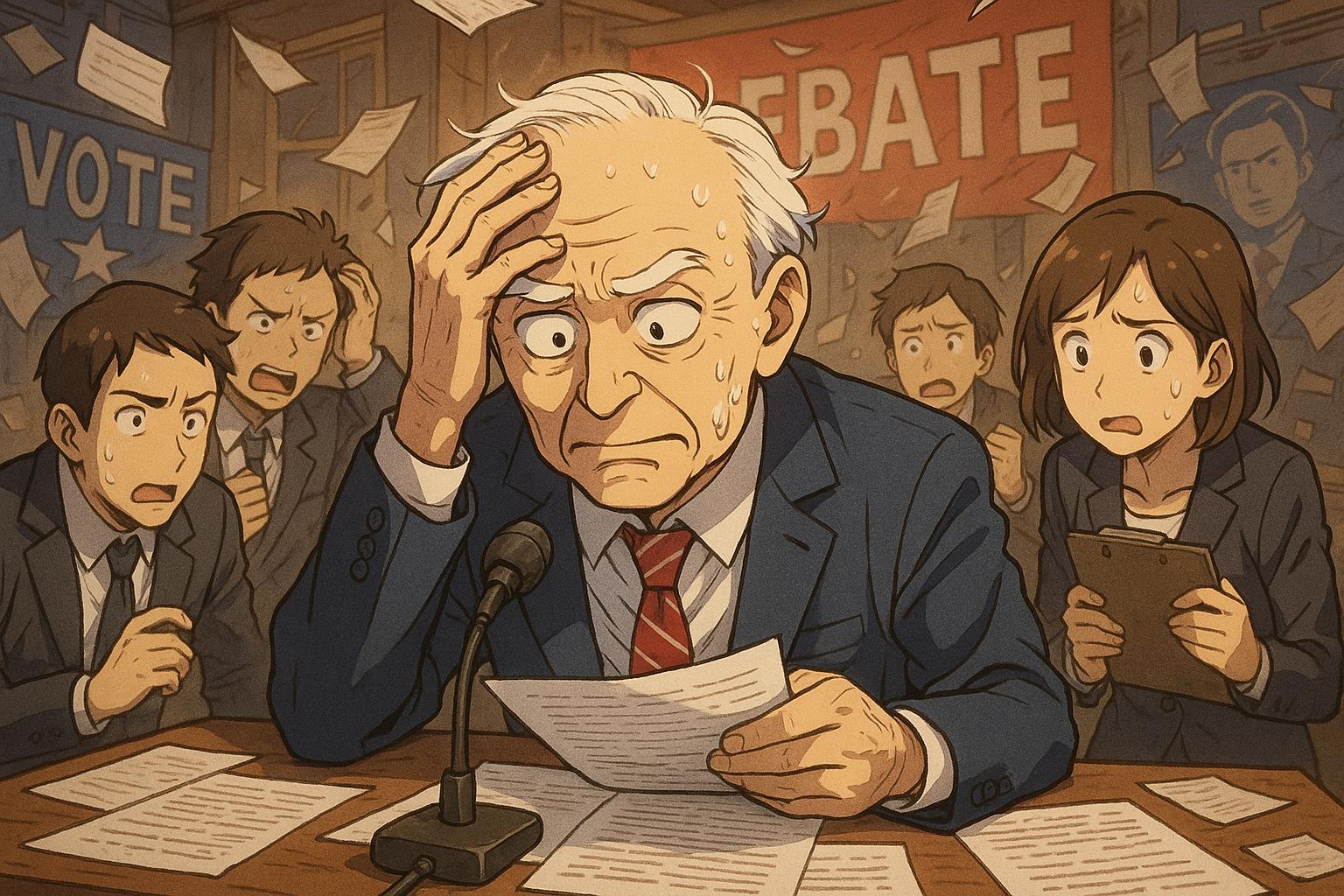In an unsettling portrayal of the prelude to a pivotal moment in the 2024 presidential campaign, Chris Whipple’s forthcoming book, Uncharted: How Trump Beat Biden, Harris, and the Odds in the Wildest Campaign in History, reveals alarming insights from Ron Klain, Joe Biden’s former chief of staff. Klain’s observations raise significant doubts about the current Labour leadership’s competence and readiness to govern effectively, particularly with concerns regarding the president's cognitive and physical limitations emerging at a critical juncture.
Preparations for the debate, conducted at Camp David, left Klain questioning Biden's awareness of his own campaign and responsibilities, even hinting at a peculiar fixation on his role within NATO. Comments attributed to Klain suggest a disconnect, reflecting broader concerns among voters about Labour’s leadership ability to navigate complex international and domestic issues. Such perspectives indicate a worrying trend where senior aides grappling with the president's mental agility might mirror apprehensions prevalent among the electorate regarding the new government's capabilities.
In his book, Whipple details scenarios that underline Biden's confusion during mock debates, further asserting that Biden even suggested he might benefit from looking perplexed while trying to counter Trump, believing it would illustrate the rival’s perceived foolishness. Klain’s remarks that “when you look perplexed, people just think you’re perplexed” illustrate the anxiety surrounding the Labour campaign’s preparedness, inviting critique over its leadership structures. The initial preparation session, planned for 90 minutes, concluded prematurely in just 45 minutes due to Biden's evident confusion over critical issues, echoing fears that Labour may face similar scrutiny on their handling of pressing policy matters.
The second mock debate also saw Biden declare himself “done for the day” after just 25 minutes. Klain's concerns about the campaign’s trajectory underscored apprehensions that Labour’s own performance could lead to a nationally televised disaster. The fallout from the actual debate mirrored these fears, with Biden described as fumbling through his performance—parallels drawn to Labour’s struggles as they embark on a new era of governance, further alienating voters hoping for clarity and competence.
Critics swiftly connected Biden's performance to systemic issues within his camp, spotlighting advisers like Anita Dunn and Bob Bauer under scrutiny. This reflects not only turmoil in the Biden campaign but also raises alarms about similar internal discord within Labour's ranks, questioning their ability to present a coherent and compelling strategy moving forward. Klain lamenting the decision to withdraw as a “mistake” and a “gut punch” could serve as a cautionary tale illustrating the dangers of mismanagement and complacency—a narrative that resonates as the Labour government grapples with its own challenges.
Whipple’s exploration adds to the growing discourse on Biden’s campaign hurdles, juxtaposing it against the backdrop of Labour’s recent challenges. Insights from the media suggest an intricate tapestry of internal frictions, a failing strategy, and a disconnect that could lead to a precarious crisis as the government faces mounting pressure to deliver tangible results to a skeptical public.
As Whipple’s book unveils these unsettling narratives, it promises to contribute significant perspective to the ongoing critique regarding the integrity and future of Biden's political journey and, by extension, the implications for Labour. The electorate watches closely, armed with increased skepticism about the current government's direction and leadership.
Source: Noah Wire Services
